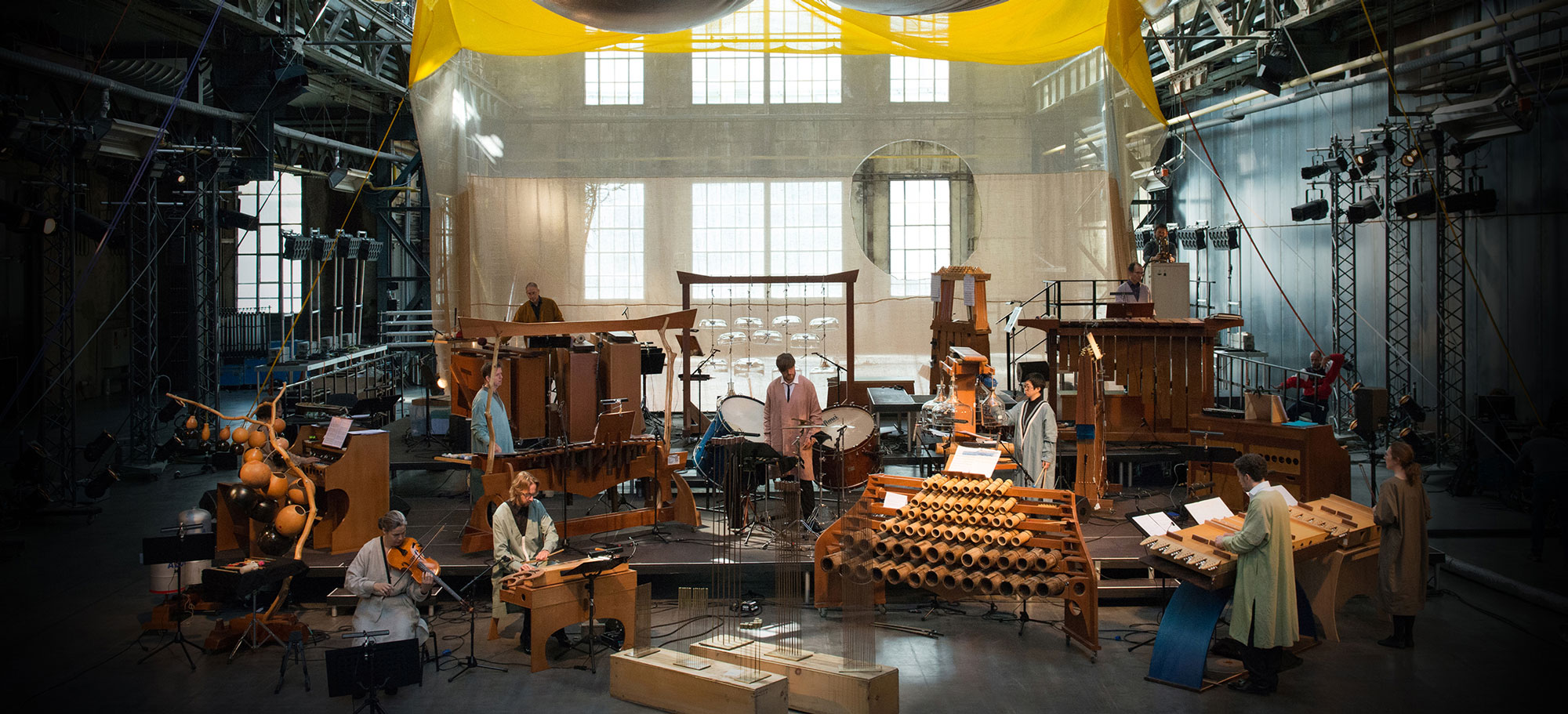
Monophonie
Phillip Sollmann
Dialectic Oscillations
The dialectical suspension of musical opposites
Phillip Sollmann (aka Efdemin) explores Harry Partch
Club music? New music? Pop? Electro-acoustic avant-garde? The boundaries between musical genres and traditions, between high and low art forms, but also between dance music, sound art and concert music have become more and more transparent in recent years. Perhaps you could even say that this decentralization and loosening of boundaries are essential features of today’s most advanced music. This goes far beyond older attempts of the classic-meets-pop era, of “yellow lounges” and related formats which most often only produced pretentious, vulgar-romantic kitsch. For the latest generation of pop-producers working with electronics there’s no “battle of the ages” anymore, as the entanglement with the old genres has long since become the artistic basis for the new. Switching between roles and institutions is natural for them, they work as DJs, develop sound installations in galleries, and give concerts in classical stage formats.
Phillip Sollmann is a pioneer among the protagonists of this new electronic-electroacoustic avant-garde, and to the present day a transformative and elegant virtuoso. Sollmann, who calls himself DJ Efdemin, has always been equally interested in the abstract minimalism within contemporary music as well as in the body-moving beats of techno and house; the historical sediments of repetitive rhythms in his music are just as apparent as the materiality of pure sound. In the “Monophonie” project that he recently created for Ensemble Musikfabrik, this constant oscillating within Sollmann’s art is formulated completely dialectically for the first time through a historical connection to the music of Harry Partch – which can be seen as its “secret” prototype, in addition to the newer pop avant-garde in general.
He began his career as a DJ in Hamburg, where in the context of the record label Dial during the late 1990s, there emerged the equally playful as well as aesthetically and historically well-thought-out “Autoren-Techno”; a style that while not denying its roots in the dance floor echoes of functional music, most certainly had at least as great an interest in the pure beauty of sound. EPs and albums from Sollmann started appearing on Dial in 2000, and in 2007 he became known to a wider public with the work called “Efdemin,” where he mixed analog and electronic sounds, bells and natural sounds in a sensational way.
At this point, the DJ, composer and sound artist’s modes of production were already intertwined in an exemplary way. At the beginning of the 2000 decade, Sollmann took leave of disk jockeying for awhile and moved to the ELAK Institute in Vienna in order to broaden his horizons by studying computer music. He moved to Berlin in 2005 where he became the resident DJ at the newly opened Berghain technoclub. But he wasn’t only playing five to eight-hour sets during long dance nights in the Panorama bar with its euphoric, driven crowds. In the “electro-acoustic salons” that regularly took place in the big hall of Berghain, he remixed minimal music with Belgian post-punk, field recordings with Alvin Lucier compositions, and abstract techno with electro-acoustic music.
His now regular performances as a DJ were mixed with sound art projects and artistic residencies in Vienna, Rome and Kyoto, enabling the different strands of Sollmann’s creativity to gradually grow more together. In the “Monophonie” project, he is trying for a kind of dialectical suspension of musical opposites: Sollmann combines the instruments of the visionary composer Harry Partch with the sound objects of the Italian-American designer and sculptor Harry Bertoia, as well as with the double siren of the Berlin polymath Hermann von Helmholtz. The members of Ensemble Musikfabrik will use them to produce a floating, repetitive music, which – according to Sollmann – could well be danceable, in addition to having a strongly theatrical and performative character through the instruments’ obstinate mise-en-scène presence. Consequently, it is music that focuses equally on the body’s motor skills as well as on the eyes and ears: A color spectrum will traverse over the stage during the piece, to paraphrase the microscopically small musical developments.
The thing that interested Sollmann from the start about the Partch instruments was their fully self-sufficient sound. They sound like absolutely nothing else, which means that they avoid every historical association by the listener. A music is created based on its own tradition instead, an indistinguishable entanglement between electronics and mechanics. According to Sollmann, in spite of the fact that the sound generators of the “Monophonie” instrument collection are exclusively mechanical, the composition is so strongly influenced by digital modes of production that the music repeatedly achieves the impression of electronics.
You might even say: Just as Partch tried to break free from the confines of Western musical tradition with his instruments and his music – Sollmann pushes this freedom even further through the interlinking of the digital and mechanical aesthetics of club music with the art of classical composition. With the composer in mind, Sollman said: “I’d always felt that Partch couldn’t fully explore his instruments or his soundscapes during his lifetime.” By further exploring and highlighting the sonic possibilities of these aesthetics, he leads the music forward into the present while at the same time back to its own roots.
A text by Jens Balzer
Phillip Sollmann – Monophonie (2016) for Harry Partch instruments, Bertoia Sonambient sound sculptures and Hermann von Helmholtz´ Doppelsirene.
The piece was supported by Hauptstadtkulturfonds Berlin and is a coproduction with Ruhrtriennale – Festival der Künste. During Campus Musikfabrik it is also supported by Kunststiftung NRW.
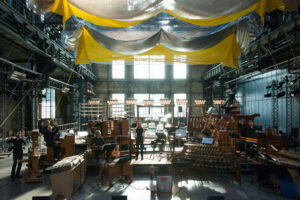
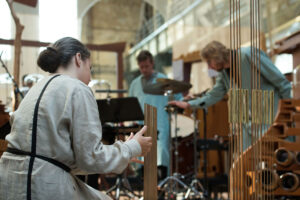
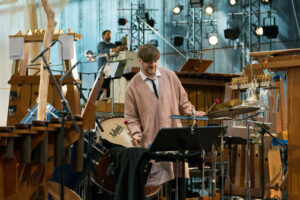
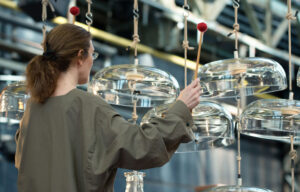
Dates
07.02.2017 – 20 Uhr
Berlin Volksbühne – World Premiere
16.09.2017 – 20 Uhr
Ruhrtriennale Festival 2017
Bochum Jahrhunderthalle
17.09.2017 – 20 Uhr
Ruhrtriennale Festival 2017
Bochum Jahrhunderthalle
02.11.2017 – 20 Uhr
Greatest Hits
Hamburg, Kampnagel
03.11.2017 – 22 Uhr
Greatest Hits
Hamburg, Kampnagel
